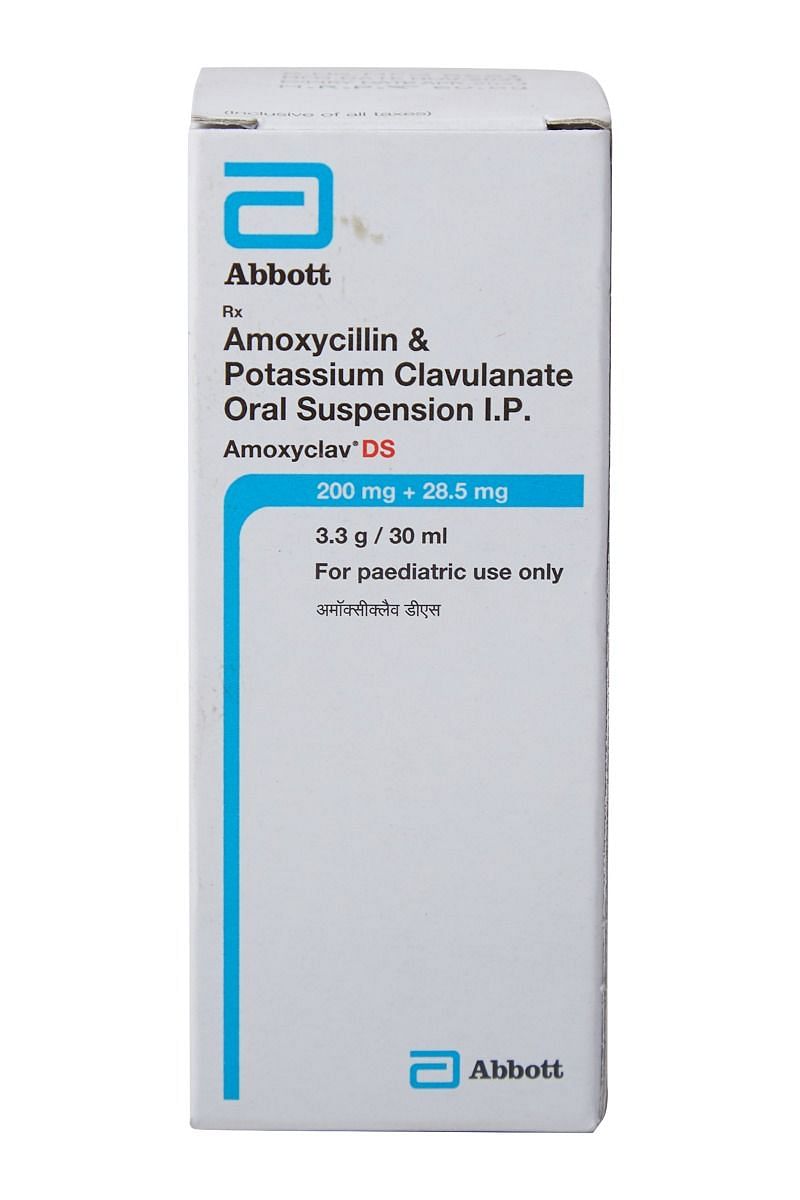
Oa Clav Dry Syrup
Manufacturer
Yester Pharma Pvt Ltd
Salt Composition
Amoxycillin (200mg) + Clavulanic Acid (28.5mg)
Key Information
Short Description
Oa Clav Dry Syrup is an antibiotic medicine that helps treat bacterial infections of the ear, nose, throat, chest, lungs, teeth, skin, and urinary tract.
Dosage Form
Dry Syrup
Introduction
Oa Clav Dry Syrup is an antibiotic medicine that helps treat bacterial infections of the ear, nose, throat, chest, lungs, teeth, skin, and urinary tract. It is capable of killing bacteria that have become resistant to other therapies and thus also helps treat tuberculosis that is resistant to other treatments.
Directions for Use
Your child must complete the entire course of antibiotics. Stopping too soon may cause the bacteria to multiply again or cause another infection.
Safety Information
Side Effects
Bitter taste in the mouth after intake Diarrhea Itchy rash, facial swelling, or breathing difficulty (stop medication and consult doctor immediately)
How it works
Oa Clav Dry Syrup is an antibiotic. It has two active agents amoxycillin and clavulanic acid. Amoxycillin works by preventing the formation of the bacterial protective covering (cell wall) essential for the survival of the bacteria. Whereas clavulanic acid serves a special purpose of inhibiting an enzyme (beta-lactamase) that is produced by resistant bacteria.
Quick Tips
Your child must complete the entire course of antibiotics Encourage your child to drink plenty of water in case diarrhea develops as a side effect Never give Oa Clav Dry Syrup until and unless prescribed by the doctor Do not give Oa Clav Dry Syrup to treat common cold and flu-like symptoms caused by viruses Check 'expiry' before giving Oa Clav Dry Syrup to your child
Related Medicines

Moxikind-CV Dry Syrup

Amoxyclav Dry Syrup

Advent 228.5mg Dry Syrup Tangy Orange

Clavico Dry Syrup

Eradiclav Duo Dry Syrup

Clavica Dry Syrup

Xylum Dry Syrup

Duet DS Dry Syrup

Moroxil CV Dry Syrup

Sunclav Dry Syrup
Frequently asked questions
Can other medicines be given at the same time as Oa Clav Dry Syrup?
Oa Clav Dry Syrup can sometimes interact with other medications or substances. It is important to inform your child's healthcare provider about any other medications they are currently taking before starting Oa Clav Dry Syrup. Additionally, consult your child's doctor before administering any medication to your child.
Can I get my child vaccinated while on treatment with Oa Clav Dry Syrup?
Antibiotics generally do not interfere with the components of vaccines or cause a negative reaction in children who have just received one. However, it's recommended that you wait until your child recovers from the illness before administering any vaccine. Once they are feeling better, the vaccination can be performed.
Which lab tests may my child undergo while taking Oa Clav Dry Syrup on a long-term basis?
In cases of prolonged treatment with Oa Clav Dry Syrup, your child's doctor might perform periodic kidney and liver function tests to monitor their overall condition.
Can I give a higher than the recommended dose of Oa Clav Dry Syrup to my child?
Giving a higher than the recommended dosage of this medication can increase the risk of adverse effects. If your child experiences increased severity of symptoms, consult your child's doctor for re-evaluation.
Can I stop giving Oa Clav Dry Syrup to my child when the symptoms are relieved?
No, do not discontinue giving this medication to your child unless the full course of treatment has been completed, even if they feel better. Symptoms may improve before the infection is fully eradicated. Therefore, continue administering the medication according to the prescribed schedule, as it might still be providing beneficial effects.
Can Oa Clav Dry Syrup cause diarrhea?
Yes, Oa Clav Dry Syrup can cause diarrhea. It is an antibiotic that targets harmful bacteria. Additionally, the medication may alter the balance of helpful bacteria in your child's gut, resulting in diarrhea. Encourage your child to drink plenty of fluids if they experience diarrhea. If diarrhea persists and you notice signs of dehydration such as decreased urination with dark-colored, strong-smelling urine, consult a doctor immediately. It is important not to administer any medication to your child without consulting a healthcare professional.
Do all viral common colds result in secondary bacterial infection?
Generally, bacterial infections do not follow viral infections. In fact, administering antibiotics to viral infections can increase the risk of adverse effects. Only use antibiotics after discussing it with your child's healthcare provider.
The mucus coming out of my child’s nose is yellow-green. Is it a sign of a bacterial infection?
Yellow or green mucus in the nose does not necessarily indicate a bacterial infection. During a common cold, mucus may thicken and change color from clear to yellow or green. Symptoms often last for 7-10 days.
Is there any sign which shows that my child needs immediate medical attention?
You should contact your child's healthcare provider immediately if they experience severe allergic reactions (difficulty breathing, skin rashes), gastrointestinal problems (diarrhea), or liver damage (weakness, paleness, vomiting). Although rare, these side effects can be serious and require expert attention.


